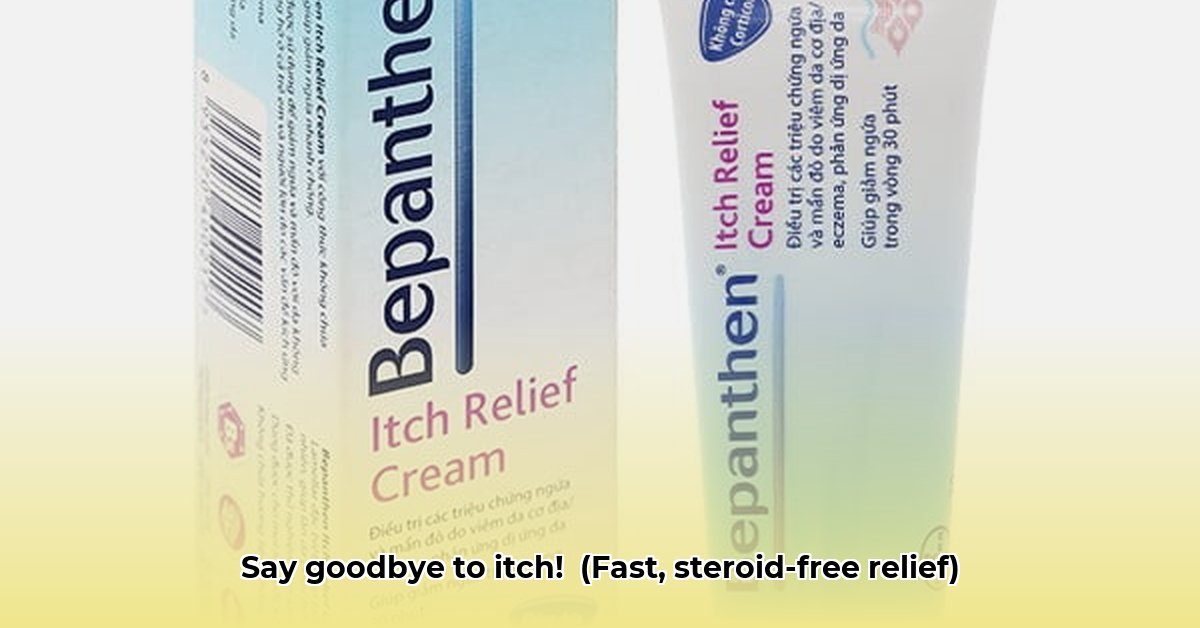
That irritating itch – jy’s a real moer, isn't it? Dry, sensitive skin can be incredibly uncomfortable, but help is at hand. This comprehensive review examines Bepanthen Itch Relief Cream, a steroid-free option promising fast relief. We'll explore how it works, its benefits and drawbacks, who it's best for, and how to use it safely. By the end, you'll be better equipped to decide if Bepanthen is the right solution for jou.
How Bepanthen Works Its Magic
Bepanthen's effectiveness hinges on its Lipid Lamellar Technology™ (a patented technology that mimics the skin's natural lipid structure). Think of your skin as a brick wall: the "bricks" are skin cells, and the "mortar" is the lipid barrier that keeps moisture in and irritants out. Conditions like eczema or dryness can weaken this barrier, causing itching.
Bepanthen's Lipid Lamellar Technology™ acts like a high-tech repair kit, rebuilding this protective layer. Key ingredients are Dexpanthenol (Provitamin B5 – known for its soothing properties) and glycerin (a humectant attracting and retaining moisture). They work synergistically to repair damaged skin, reducing dryness and itchiness. It's like giving your skin a much-needed, gentle knuffel.
The Good Stuff: Bepanthen's Benefits
Many users report rapid itch relief – often within 30 minutes. This speed is a major plus, especially when dealing with intense discomfort. The steroid-free formulation is another advantage, making it suitable for those avoiding potential steroid side effects, particularly for sensitive skin, including babies. It's frequently praised for its suitability for nappy rash.
The Not-So-Good: A Balanced View
While Bepanthen is popular, some limitations exist. Comprehensive head-to-head comparisons against other itch relief creams are scarce, making definitive superiority claims difficult. Also, while short-term effectiveness is frequently reported, long-term efficacy data requires further research.
Important: Bepanthen isn't a miracle cure. For persistent or severe itching, or extensive skin irritation, jy moet consult a healthcare professional. They can diagnose the underlying issue and prescribe appropriate treatment. Self-treating serious skin conditions can delay proper care.
Who Should Use Bepanthen?
Bepanthen is generally suitable for mild to moderate skin irritations in people of all ages – often soothing dryness, minor rashes, and nappy rash in babies. However, severe conditions like chronic eczema or psoriasis require a doctor's consultation.
Using Bepanthen Effectively: A Step-by-Step Guide
- Cleanse: Gently wash and thoroughly dry the affected area.
- Apply: Apply a thin layer of cream. Less is more!
- Massage: Gently rub until absorbed.
- Repeat: Apply as needed, avoiding overuse.
Precautions and Potential Side Effects
Allergic reactions, though rare, are possible. For sensitive skin, perform a patch test first. Discontinue use and seek medical advice if you experience any unusual reactions (redness, swelling, increased irritation).
The Bottom Line: Is Bepanthen Right for You?
Bepanthen Itch Relief Cream offers fast, effective relief from common skin irritations. Its gentle, steroid-free formula is appealing for sensitive skin. However, it's not a cure-all. Persistent or severe itching demands professional medical attention. Always prioritise your skin's health.